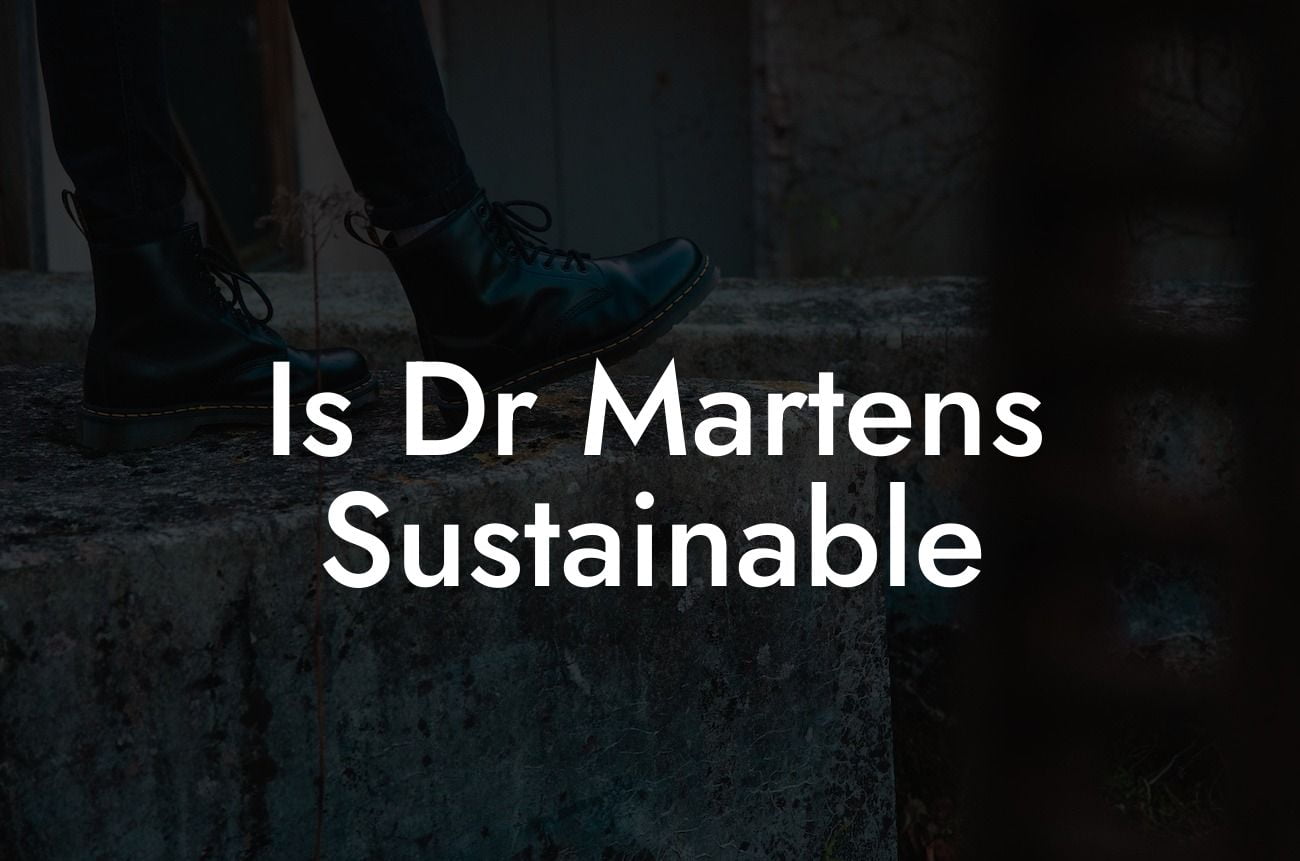Dr. Martens shoes have become a timeless footwear staple for many generations. Known for their iconic style and durability, they have gained a massive following around the world. However, in an era where sustainable fashion is in the spotlight, it's crucial to question the environmental impact of our favorite brands. In this article, we delve into the sustainability of Dr. Martens shoes. Are they really an eco-friendly choice? Let's find out.
Feet in ridiculous pain and you're slowly loosing the will to live? Try Break Me In Daddy, the easiest way to break in your new Doc Martens without making your feet look like grated cheese. Lactose, cute toes. Find out more →
Dr. Martens Materials
Dr. Martens shoes are primarily made from high-quality leather, which raises concerns about their sustainability. However, the brand has taken considerable steps to ensure that their leather is sourced responsibly. They prioritize partnerships with tanneries that adhere to stringent environmental standards, ensuring the reduction of harmful chemicals and water waste. Additionally, Dr. Martens has implemented a "Slow Leather" initiative, which aims to reduce the environmental impact of leather production significantly.
Alternative Materials
In recent years, Dr. Martens has made commendable strides towards incorporating more sustainable materials into their shoe range. For instance, the brand introduced vegan leather options, utilizing synthetic materials that replicate the look and feel of real leather without the animal cruelty and environmental drawbacks. Furthermore, they have experimented with recycled materials, such as canvas and rubber, in some of their collections.
Manufacturing Processes
Dr. Martens is also committed to improving their manufacturing processes to reduce their environmental footprint. They strive to promote energy efficiency and waste reduction in their factories. By implementing innovative technologies and sustainable practices, the brand aims to minimize their carbon emissions and water usage throughout the production cycle.
Corporate Responsibility
Beyond their material and manufacturing choices, Dr. Martens is dedicated to corporate responsibility and ethical business practices. They actively engage in community initiatives, support charitable organizations, and prioritize the well-being of their employees. Their commitment to transparency and social responsibility is reflected in their annual sustainability reports, where they disclose their progress and goals towards a more sustainable future.
Is Dr Martens Sustainable Example
To better understand the sustainability efforts of Dr. Martens, let's take a look at their iconic 1460 boot. Made from leather sourced from environmentally responsible tanneries, the boot showcases the brand's commitment to reducing environmental harm. Furthermore, Dr. Martens offers a vegan version of the 1460 boot, crafted from synthetic materials that mimic the appearance of leather without the ecological impact. With these options, consumers can make choices aligned with their values while still enjoying the timeless style of Dr. Martens.
In conclusion, while Dr. Martens still relies predominantly on leather for their shoes, their commitment to responsible sourcing and manufacturing practices sets them apart in the industry. By incorporating vegan alternatives and exploring recycled materials, they are striving to make sustainable choices more accessible to consumers. So next time you consider purchasing a pair of Dr. Martens, remember to weigh the environmental factors and make an informed decision. Share this article to spread awareness, and explore our other guides on Break Me In Daddy for all things Dr. Martens.













